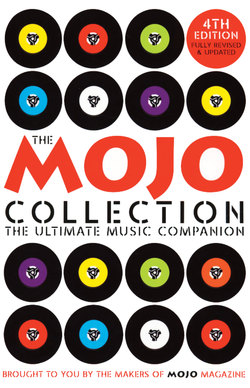Читать книгу The Mojo Collection - Various Mojo Magazine - Страница 139
На сайте Литреса книга снята с продажи.
David Ackles David Ackles A former toilet-factory security guard taps into the American heartland in a classic debut.
ОглавлениеRecord label: Elektra
Produced: David Anderle and Russ Miller
Recorded: Location and date unknown
Released: September 3, 1968
Chart peaks: None (UK) None (US)
Running time: 37.54
Personnel: David Ackles (p, v); Michael Fonfara (o); Danny Weis (g); Douglas Hastings (g); Jerry Penrod (b); John Keliehor (pc)
Track listing: The Road To Cairo (S); When Love Is Gone; Sonny Come Home; Blue Ribbons; What A Happy Day; Down River (S); Laissez-Faire (S); Lotus Man; His Name Is Andrew; Be My Friend
Current CD: Elektra 7559615952
Further listening: American Gothic (1972)
Further reading: www.mathie.demon.co.uk/da/
Download: HMV Digital
Born into a showbiz family, at the age of four David Ackles was half of a song-and-dance act with his sister, and in his early teens was a Hollywood B-movie child actor. Contracted to Elektra purely as a songwriter in the late ’60s, label boss Jac Holzman soon realised that compositions as idiosyncratic as The Road To Cairo, about a man immobilised by fear, or His Name Is Andrew, detailing the pain of lost faith, would best be served if Ackles sang them himself. Partnered with his old school-friend David Anderle as producer, he set to work recording and orchestrating his poignant story-songs.
‘We had to make that album twice to get what I wanted,’ explained Ackles later. The second attempt came when Ackles was introduced to Rhinoceros, another recent Elektra signing. ‘We sat around and I played the songs and they filled in, and we just had such a good time. We knew that was the right thing to do.’
The album offered the intelligence and imagery of Leonard Cohen without the self-pity, as it stumbled along on Ackles’s curious piano rhythms, augmented by Michael Fonfara’s whistling organ and Doug Hastings’s empathetic guitar filigrees. These collaborative arrangements tended towards stagey structures, as if written for some half-realised off-Broadway musical, ideal for tracks like Down River, an ingeniously plotted, semi-autobiographical, one-sided conversation with a sting in its tail. Ackles later recalled the sessions as ‘an easy-going, friendly affair’, but the atmosphere was shot through with the singer’s world-weary aching and loneliness. On release, Rolling Stone complimented his voice but reckoned his melodies were ‘almost no melodies at all’, while the nearest Record Mirror got to a positive comment was ‘a plaintive sort of collection’. After four unsuccessful albums, Ackles became variously a lecturer, TV scriptwriter and scorer of ballets. As if he was becoming a character in one of his own songs, various accidents left him with an all but crippled arm and a steel hip before he had his first encounter with cancer. Tracked down in 1994, Ackles said, ‘I’m really enjoying my life, which will no doubt come as a shock to fans of my first two albums, in whose angst they swim.’ On March 2, 1999, David Ackles died of lung cancer, leaving a legacy of four of the most beautiful but rarely heard albums of his era.
